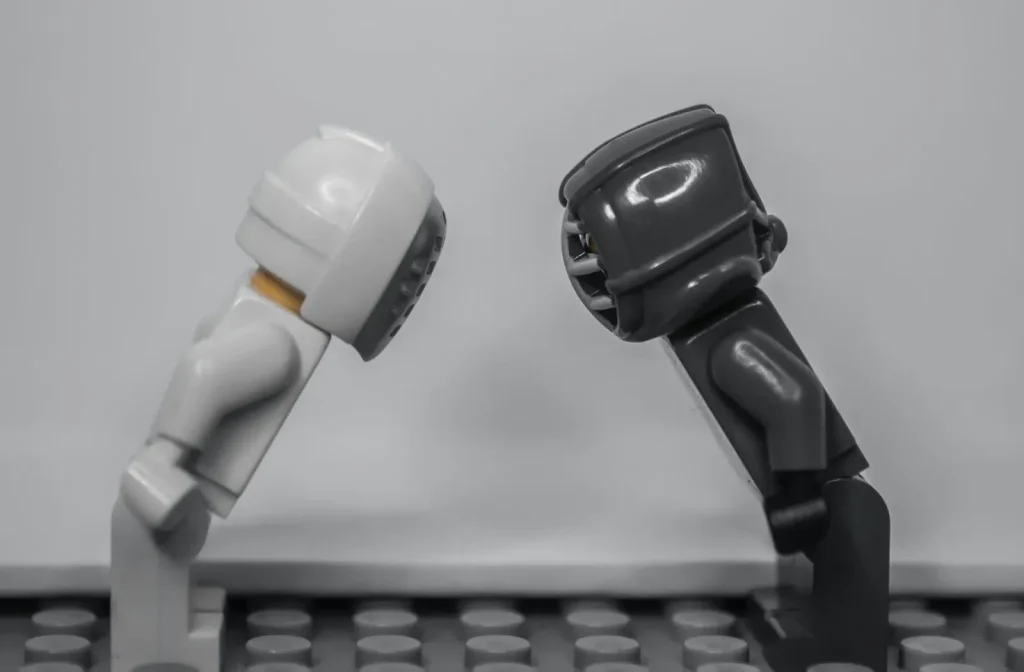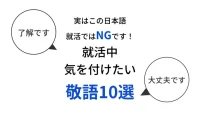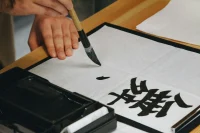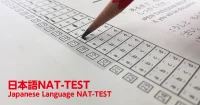What does "Good evening" mean? Paraphrases and the difference between "Good work" and "Good work".

Every foreigner living in Japan has probably heard the phrase "Otsukare-sama desu" at least once. Especially in Japanese offices, this is a greeting that is exchanged without fail every day. This phrase is commonplace for Japanese people, but it is said that foreign languages do not have a phrase that exactly corresponds to "Okewase shimasu desu" (thank you for a good night). Japanese people use this greeting in various situations without thinking too much about it, but for foreigners it may be a little difficult to master.
In this issue, we will explain in detail the meaning and usage of this useful greeting "okeyasama desu" and the difference from "okeyasama desu". It is full of useful information not only for learners of Japanese, but also for foreign residents working in Japan, so please read to the end.
▼Goandup Picks Click here for recommended articles!
- Required before studying abroad! Goandup Nihongo+, an online Japanese language learning service
- This page introduces services for foreigners who wish to study in Japan or improve their Japanese language skills to learn Japanese online.
- Goandup Salon" community for foreigners living in Japan
- We introduce an online community where foreigners living in Japan can exchange information and interact with each other to support their life in Japan.
- Goandup Study" supports foreigners who want to study in Japan.
- This section introduces study abroad support services that provide comprehensive support to foreigners who wish to study in Japan, from preparation for study abroad to living in Japan.
- Where can I buy a prepaid SIM in Japan? Recommended SIM cards for foreigners are also introduced.
- How to purchase a prepaid SIM and suitable SIM cards for foreigners.
- The Complete Guide to Pocket Wi-Fi in Japan for Foreigners!
- We introduce how to select and recommend pocket Wi-Fi products that can be used conveniently in Japan.
- The Complete Guide to Finding a Job in Japan! Finding a job, changing jobs, and part-time work for foreigners
- This site provides foreigners who want to work in Japan with comprehensive information on how to find a job, recommended job sites, and other information necessary to find a job.
What does "Good work" mean?

Good evening" is an indispensable phrase for Japanese people. Japanese people use it without thinking about the meaning or situation in particular, but sometimes people use it incorrectly. I would like to urge everyone to use it correctly.
Tiredness" is a greeting used to express gratitude for a job or task. Although it contains the word "tired," the phrase can also be used to express gratitude for doing that work, or to express gratitude for a job well done, such as "大丈夫, is it? Are you tired?" which have positive meanings such as gratitude and kindness. For this reason, Japanese people frequently use this phrase to express their appreciation for each other's labor and feelings.
For example, by saying to a colleague after a day's work at the office, "Thank you for a good day's work. You can express your feelings such as, "Thank you for a job well done. Also, after a long meeting or a tough project, you can acknowledge each other's hard work by saying, "Good job.
Scenes and usage of "Good evening, sir.

The main situations in which "Otsukasaimasan desu" is used are in business situations. It is used for people who have finished their work or are leaving the office.
The key point to note is that it should not be used with people outside the company or with customers. Be sure to use it between employees of the same company. For example, if you have a visitor from another company and you say, "Thank you for your hard work," when you leave, it is impolite and should be avoided.
However, as an exception, stores that provide relaxation-related services, such as massage and hair salons, may use "Otsukimaso desu" (thank you for your hard work) for customers. When a service is provided that requires the customer's cooperation, such as asking the customer to stay in the same position for a long time, the greeting may mean, "Thank you for your hard work (for a long time)" for that cooperation. In this case, it is not a rude nuance.
Specific usage scenarios include the following
- When a co-worker leaves the office, I say, "Thank you for your hard work. Please be careful on your way home."
- When you congratulate your subordinate on his/her work performance: "Thank you for answering so many calls today. Thanks for all your hard work."
- After company-wide meetings, "Thank you all for your hard work at the meeting. We had a lively exchange of ideas.
- When I pass by a colleague in another department, I say, "Good work. Let's have another good day."
- When you go out for a drink with your coworkers or boss after work and toast, "Good job!"
Even when I go out for a drink with my colleagues or boss after work I often make a toast while saying "Okeyasumi desu! Good work!" is an essential greeting in the Japanese business world, and I encourage everyone to use it. It is a great phrase to acknowledge the other person's work and convey a sense of gratitude.
What's the difference between "Good work" and "Good job?"

Good evening," and "Good evening, sir," are similar but used in different situations. As learners of Japanese may immediately notice, there is a difference between the past and present tenses.
Good morning" can be used at any time during the workday, from the morning, during the day, and until you leave the office. When you arrive at work, you may use "Ohayo gozaimasu" in the same way. If you have a colleague who has already arrived at work and started work, you can say "Good morning. Good morning!" you can greet them with "Good morning!" to add to your morning greeting and to show your appreciation for the fact that they have already started work.
Incidentally, in the office, "Good morning" is used in the morning, but "Hello" and "Good evening" are generally not used. Outside of the morning, it is recommended to use "Good morning".
In addition, you often pass by or talk with colleagues and other staff members during the day in the office. When you do, it is a good idea to greet them with a light nod of the head and a "Good evening. It is a convenient phrase that can be used to casually greet people whenever you encounter them.
Paraphrases and similes for "Good work!" and "Good work!"

Let's take a look at some paraphrases and analogies of the phrases "Good work, sir" and "Good work, sir. By using them in different ways depending on the situation, you can broaden your communication.
1. "Thank you for your hard work."
Gohasama-sama desu" is a phrase used for subordinates and junior staff. It should never be used with superiors, seniors, or people outside the company. It may also be used to address one's peers (colleagues who joined the company at the same time), but care must be taken to avoid minor differences in nuance.
For example, office building cleaning staff and security guards are not your subordinates, even if they are employed by your company. If you say, "Thank you for your hard work," to such people, you may give the impression that you are looking down on them. Depending on the relationship, you may want to say, "Thank you for your hard work. It would be safer to use other expressions such as "Thank you for all your hard work.
2. "After you."
In Japanese companies, "sayonara" is not often used when leaving the office. It is common to say, "Good-bye" to those who have left the office before you, in appreciation of their efforts during the day.
And when you are the first to leave the office, use "ogottari sasai shimasu" (I'll leave before you). If the person you are saying this to is also planning to leave soon, there is no problem with saying "Good evening," but if the other person is still working, you can say "Good evening. If the other person is still at work, use the ongoing greeting, "Good evening. If the other person is still working, use the present progressive greeting.
I'm back." and "Welcome home/welcome back."
When returning to the office from an outing, both parties can say, "Good evening," but the person returning to the office can say, "I'm back," and the person welcoming them can use, "Welcome home" or "Welcome home.
In the case of a boss or a senior colleague, if you feel that "okaerinasai" is too casual, you may want to say "okaerinasemase," which is more polite. However, if the relationship is close and "Mase" seems ostentatious, "Welcome home, thank you for your hard work. is a good choice.
Serious employment support to help you realize your dream of working in Japan!

Do you want to work in Japan?
Let us "Goandup" make that dream a reality!
【 Program Features 】
✅ JLPT N3 level Japanese language acquisition
✅ Thorough preparation for the specific skills test
✅ Full support for job hunting in Japan
Business-focused one-on-one lessons will help you find a job in Japan in the shortest possible time.
【 Program Menu 】
- Individual Japanese language lessons
- Intensive curriculum to obtain N3, especially specialized lessons for business Japanese that can be used at work.
- Intensive curriculum to obtain N3, especially specialized lessons for business Japanese that can be used at work.
- Preparation for the Specific Skills Test
- Customized materials for specific skill tests will be used to focus on frequently asked questions and learning to pass the test.
- Customized materials for specific skill tests will be used to focus on frequently asked questions and learning to pass the test.
- Resume and CV support
- To create resumes and CVs tailored to Japanese corporate culture, and to brush up on self-promotion and motivation for application.
- To create resumes and CVs tailored to Japanese corporate culture, and to brush up on self-promotion and motivation for application.
- Interview Preparation
- Guidance on areas for improvement through mock interviews and feedback based on corporate interview scenarios. Learn interview etiquette and behavior unique to Japan.
- Guidance on areas for improvement through mock interviews and feedback based on corporate interview scenarios. Learn interview etiquette and behavior unique to Japan.
- career consulting
- Provide introductions to companies that match the participant's career goals, select companies to apply to, and provide advice on the level of knowledge required by the companies to which the participant is applying.
- Provide introductions to companies that match the participant's career goals, select companies to apply to, and provide advice on the level of knowledge required by the companies to which the participant is applying.
- Chat Support
- In addition to one-on-one individual lessons, we also accept casual questions via DM (visa application, living support, assistance in finding a room, etc.).
If you are serious about your career in Japan, join us now!
▶︎ for more informationclick here.
We will do our best to support your success in Japan!
【 Summary 】 "Good work" is a useful phrase in everyday conversation!
Good work!" is often used not only in business situations but also in everyday conversation. Even in chats between friends, as an opening greeting, "Good work! or "Good work! as a greeting at the beginning of a chat between friends. Also, when meeting friends after work, "Hey! or "Hey! as a casual greeting when meeting with friends after work.
Even if you do not know what kind of situation your friend is in right now, he or she is probably working hard at something every day. It is a very nice way of communicating with your friend to say "Good job! is a very nice way to communicate.
We encourage all students of Japanese to try to use "okeyasu desu" and "okeyasu desu" in your communication with Japanese people. If you learn how to use them correctly, you will greatly improve your Japanese expression and interpersonal skills. One greeting can also help you build good human relations.
Your support will help us!
Thank you for visiting Goandup Picks. Our mission is to provide you with more useful information to show the world what Japan has to offer.
Your support will help us to further enhance our activities, so please support us!






